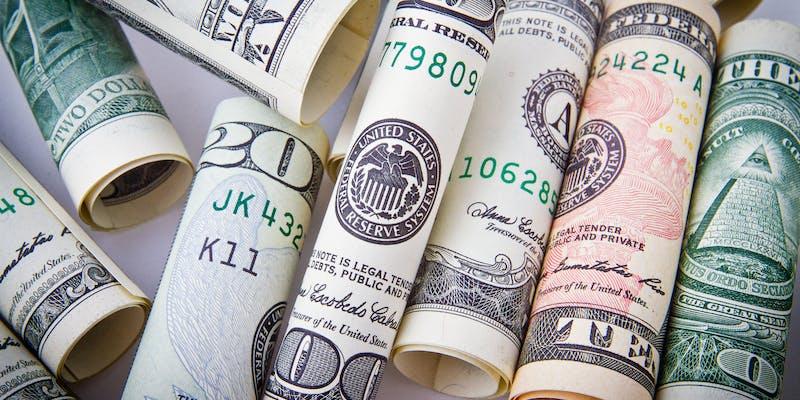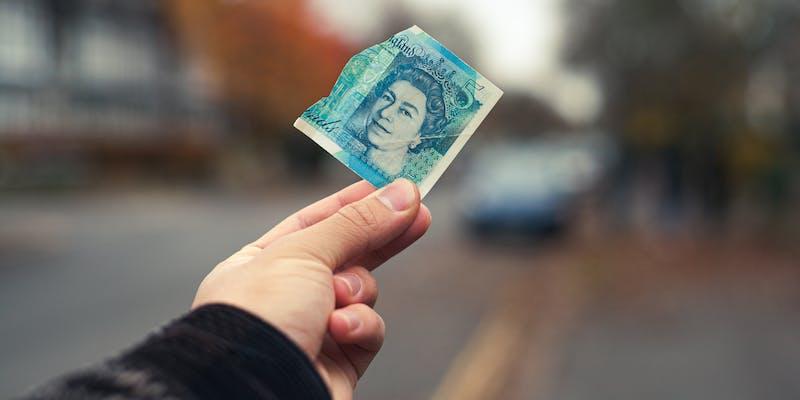British Pound Stands Stronger Than the U.S. Dollar: Why
Nov 19, 2023 By Susan Kelly
In global finance, currency strength is crucial. British Pound (GBP) and U.S. Dollar (USD) have a prominent forex market history and relationship. The U.S. Dollar has historically been worth less than the British Pound. To explain this, this article examines economic, historical, and policy factors that affect these two major currencies.
Historical Context of the British Pound
One of the oldest currencies, the British Pound, has always been critical in global finance. The Pound, worth nearly $5, was the global reserve currency before World War I. This period of economic dominance emerged during the height of the British Empire’s global influence.
The Pound's strength persisted even as the U.S. Dollar gained momentum after World War II, maintaining its higher nominal value relative to the Dollar. The conversion from pounds to dollars during this era reflected the Pound's enduring strength in the global market, underscoring the UK's longstanding economic legacy.
Economic Indicators Influencing the Pound to USD Exchange Rate

Several key economic indicators directly impact the strength of a currency, particularly evident in the pound-to-US dynamics.
Interest Rates and Monetary Policy
The Bank of England and the Federal Reserve's monetary policies strongly influence the pound-USD exchange rate. UK interest rates are higher than U.S. rates, which boosts the Pound. This difference in interest rates favors the British currency when converting pounds to dollars, making it essential.
Inflation Rates
Inflation's role in altering purchasing power directly impacts currency valuation. The UK's inflation rates have historically varied from the U.S., affecting the pound to the USD rate. As inflation rates shift, they influence how pounds convert to dollars, reflecting the changing value of each currency.
Economic Growth
UK and U.S. GDP growth is crucial to their currencies. The UK's strategic economic policies and growth trajectories have kept the pound strong even though the U.S. economy is more significant.
Trade Balances
The UK's trade balance, an indicator of economic health, significantly affects the pound's valuation against the Dollar. As trade balances shift, they directly influence the exchange rate of pounds to dollars, showcasing the interconnected nature of trade and currency valuation.
How Do Nominal and Relative Values Effect Pound-Dollar Exchange Tate?
Understanding nominal and relative values is crucial when examining the pound-dollar exchange rate. The little value, which shows the British pound's rate against the U.S. dollar, is only sometimes accurate. Relative value change compared to other currencies better reflects the pound's strength.
The pound to USD rate has kept the U.S. dollar lower than the British pound for over twenty years. In September 2022, the dollar-pound exchange rate was 1.10. This was down from May 2014's 1.68 and March 2018's 1.40. Such trends show the UK economy's challenges, especially post-Brexit, and the U.S. economy's strength. These pound to USD rate fluctuations reflect economic shifts and are essential to investors and analysts monitoring the market.
When converting pounds to dollars, currency circulation matters. The difference between the currencies in circulation in June 2023 was 2.343 trillion U.S. dollars and £81 billion British pounds. This is similar to Berkshire Hathaway and Microsoft Corp.'s market capitalizations. Microsoft Corp. has more shares than Berkshire Hathaway despite its higher share price. This analogy explains why the British pound is worth more than the dollar. This is crucial for pound-to-USD conversions.
Huge dollar volumes support the British pound's higher valuation in the pounds-to-dollar market. Forex traders and international businesses depend on this dynamic, making monitoring the pound to USD rate in the global economy complex and crucial.
Brexit and Recent Trends
On June 23, 2016, a pivotal moment occurred in the UK's history when citizens voted for Brexit, ending their long-standing membership with the EU since 1973. This decision, driven by a populist movement concerned about external control over UK laws and immigration, surprised the world. A Brexit vote had immediate and significant financial repercussions despite economists' predictions.
The British Pound fell over 8% in 24 hours after the vote. This significant fall in the pound to USD rate highlighted the shift from the pound's nominal strength to a lower relative value. Investors quickly moved away from the pound, reflecting concerns about its diminishing value.
The years following the Brexit announcement saw continued volatility in the pound to dollar exchange rate. The pound to USD dropped to 1.20 by the end of 2016. The British pound recovered to 1.40 against the USD in 2018 but remained under pressure.
Concerns about the UK's potential recession, global economic challenges, and favorable interest rate differentials for the USD contributed to this pressure. At one point, the pound to USD exchange rate even hovered close to 1.1000, sparking speculation about the possibility of reaching parity, where one British pound would equal one USD.
Market Confidence and Perception

Market confidence and perception significantly influence the strength of the British Pound in comparison to the U.S. Dollar. Political stability in the UK and economic policy decisions are crucial in shaping investor confidence.
This is evident in the fluctuations of the pound to USD rate over time. For instance, during the 2007-2009 financial crisis, the British Pound experienced a noticeable decline in value against the U.S. Dollar. However, the UK's economic policies' resilience and subsequent recovery helped the pound to USD exchange rate bounce back. Investors' perceptions, guided by economic indicators and policy directions, continue to sway the pounds to dollars rate.
The stability and strength of the British Pound are closely tied to how investors and markets perceive the UK's economic health and political environment. Consequently, the pound to USD rate is a critical indicator of the UK's standing in the global economic landscape, influencing pound-dollar transactions worldwide.








